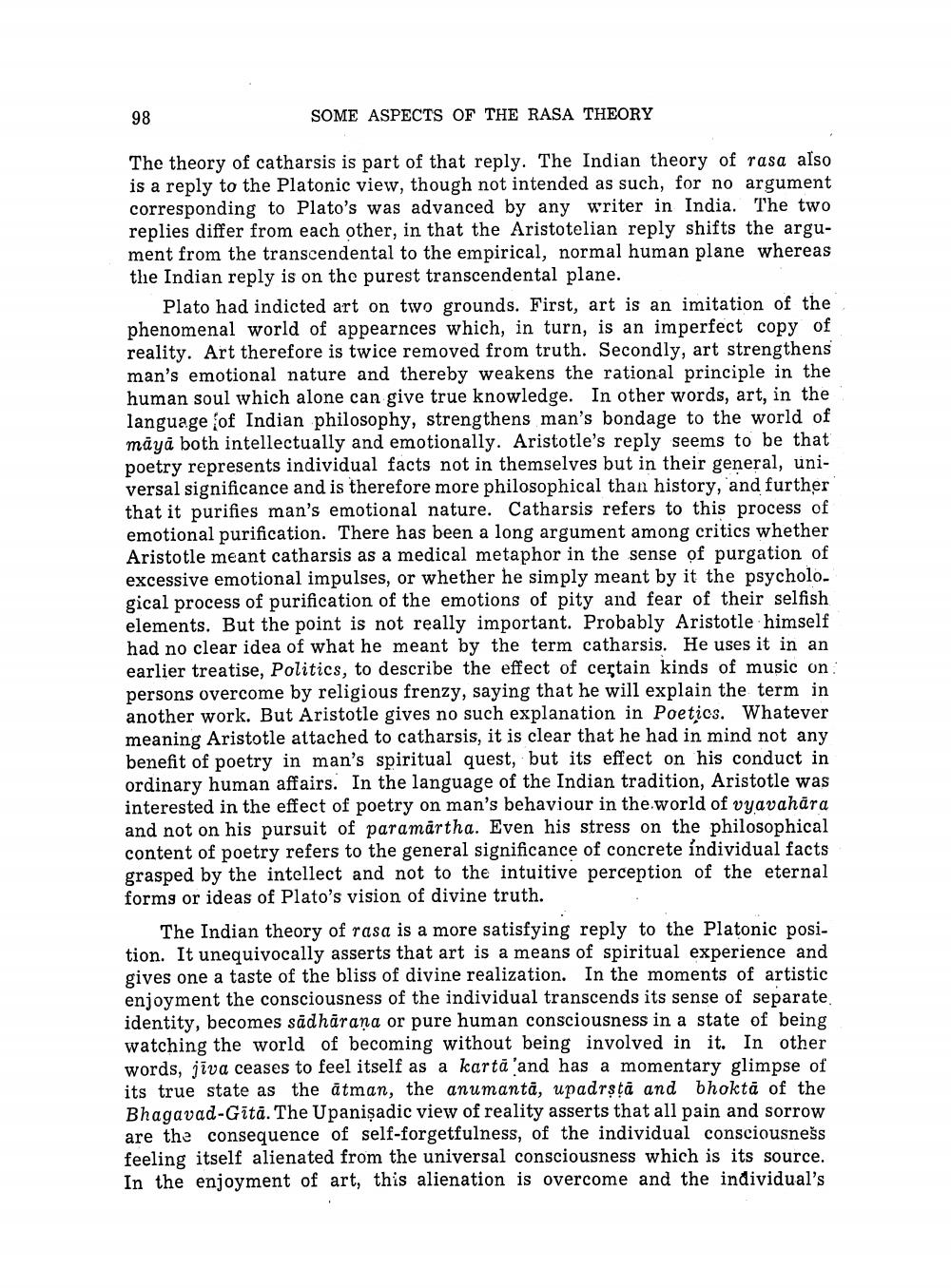________________
98
SOME ASPECTS OF THE RASA THEORY
The theory of catharsis is part of that reply. The Indian theory of rasa also is a reply to the Platonic view, though not intended as such, for no argument corresponding to Plato's was advanced by any writer in India. The two replies differ from each other, in that the Aristotelian reply shifts the argument from the transcendental to the empirical, normal human plane whereas the Indian reply is on the purest transcendental plane.
Plato had indicted art on two grounds. First, art is an imitation of the phenomenal world of appearnces which, in turn, is an imperfect copy of reality. Art therefore is twice removed from truth. Secondly, art strengthens man's emotional nature and thereby weakens the rational principle in the human soul which alone can give true knowledge. In other words, art, in the language of Indian philosophy, strengthens man's bondage to the world of may, both intellectually and emotionally. Aristotle's reply seems to be that poetry represents individual facts not in themselves but in their general, universal significance and is therefore more philosophical than history, and further that it purifies man's emotional nature. Catharsis refers to this process of emotional purification. There has been a long argument among critics whether Aristotle meant catharsis as a medical metaphor in the sense of purgation of excessive emotional impulses, or whether he simply meant by it the psycholo. gical process of purification of the emotions of pity and fear of their selfish elements. But the point is not really important. Probably Aristotle himself had no clear idea of what he meant by the term catharsis. He uses it in an earlier treatise, Politics, to describe the effect of certain kinds of music on: persons overcome by religious frenzy, saying that he will explain the term in another work. But Aristotle gives no such explanation in Poetics. Whatever meaning Aristotle attached to catharsis, it is clear that he had in mind not any benefit of poetry in man's spiritual quest, but its effect on his conduct in ordinary human affairs. In the language of the Indian tradition, Aristotle was interested in the effect of poetry on man's behaviour in the world of vyavahāra and not on his pursuit of paramartha. Even his stress on the philosophical content of poetry refers to the general significance of concrete individual facts grasped by the intellect and not to the intuitive perception of the eternal forms or ideas of Plato's vision of divine truth.
The Indian theory of rasa is a more satisfying reply to the Platonic position. It unequivocally asserts that art is a means of spiritual experience and gives one a taste of the bliss of divine realization. In the moments of artistic enjoyment the consciousness of the individual transcends its sense of separate identity, becomes sådhārana or pure human consciousness in a state of being watching the world of becoming without being involved in it. In other words, jiva ceases to feel itself as a karta and has a momentary glimpse of its true state as the atman, the anumantā, upadrstā and bhoktă of the Bhagavad-Gita. The Upanişadic view of reality asserts that all pain and sorrow are the consequence of self-forgetfulness, of the individual consciousness feeling itself alienated from the universal consciousness which is its source. In the enjoyment of art, this alienation is overcome and the individual's




